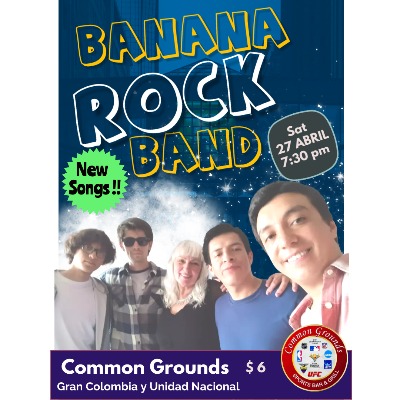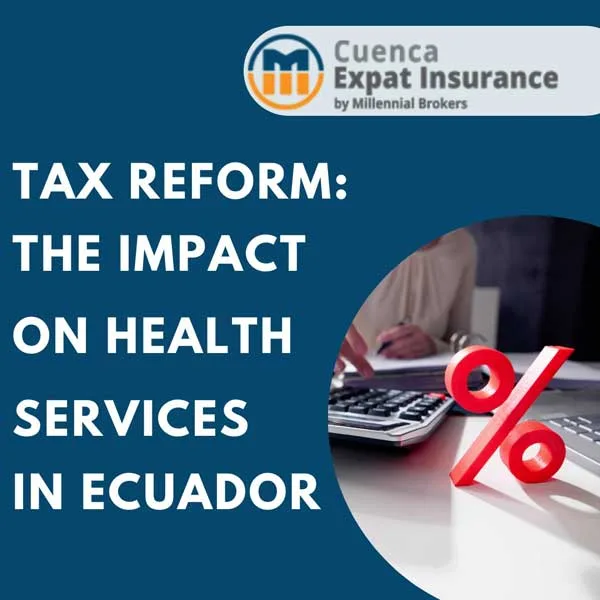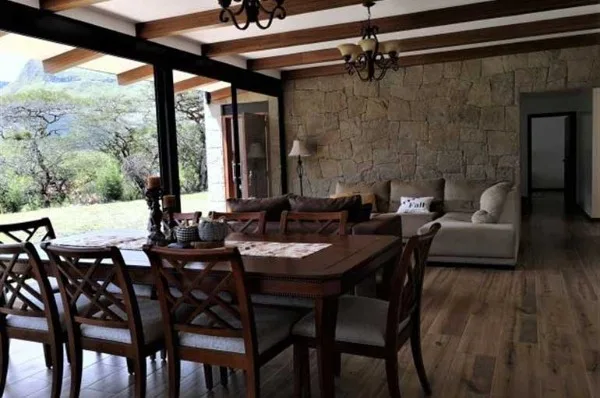As millions look to retire outside of North America, Ecuador — and Cuenca — offer attractive options
By Stephen Vargha
There are millions of Americans living abroad, but the exact number is unknown. The United States does not formally count the number of Americans who move to other countries, and it does not require its citizens to register an official place of residence.
The U.S. Department of State Department thinks U.S. citizens are living in over 160 countries. Although there is no clear consensus on the total number, most estimates show the numbers are rising.
countries. Although there is no clear consensus on the total number, most estimates show the numbers are rising.
24/7 Wall St. is a financial news and opinion company that publishes over 30 articles per day. On March 21, they said nearly two-thirds of all Americans living abroad reside in just 10 countries. It is not surprising the top two countries are Mexico and Canada. In their analysis, they found in the Top-25 destinations for Americans, 10 countries were in Europe, followed by six in Asia, and four in South America.
According to 24/7 Wall St., Peru has the largest population of Americans in South America, followed by Ecuador, Brazil, and Colombia.

Ecuador has very affordable healthcare. Recently, Bloomberg rated Ecuador as having the 20th most efficient healthcare system while the U.S. ranked near the bottom in 46th place.
In the just published book “Una Nueva Vida – A New Life, A Rejuvenated Enthusiasm in Cuenca, Ecuador,” I give an in-depth perspective of why Ecuador, specifically Cuenca, is at the top of many Americans’ list.
For many Americans, their pocketbook dictated their move. In my book, I said, “Two-fifths of Americans surveyed by Natixis Investment Managers think it’s going to take a miracle to retire in the United States. In that 2021 study, 41 percent of Americans thought their chances of being able to retire comfortably was unattainable.”
I added, “That’s a sobering statistic for anyone who hopes to enjoy a nice retirement in the United States. And it shows why the U.S. is not considered one of the top countries in the world for retirement.”
Tied into all of this is the cost of healthcare in the U.S., which often wipes out families. The U.S. is by far the most expensive country in the world for healthcare costs. According to the Organisation for Economic Co-operation and Development, the U.S. spent $11,072 per person while #2 Switzerland forked over thousands less at $7,732 per person.
Ecuador has very affordable healthcare, and Bloomberg recently rated Ecuador as having the 20th most efficient healthcare system while the U.S. ranked near the bottom in 46th place.
Living in Cuenca for over two years, I was able to give first person stories about the healthcare: “My wife had to get an MRI for her sinus and breathing problems. She went to a laboratory offering advanced diagnostic imaging services. The MRI cost us $85 in cash. You read that correctly. That same MRI in the United States would have averaged $1,325, though prices can range from $375 to $2,850.”
Then there is our family doctor, Dr. Maité Depreeuw. “Because doctors in Cuenca really look out for your well-being, some of them will follow up with you via WhatsApp. Several times our family doctor has used WhatsApp to see how we are doing. We feel spoiled,” I said in my book.
 I went on to say, “When our doctor went on vacation in Belgium for her birthday, a good friend of ours needed her medical advice and help. Our friend was battling cancer and was having issues with his medicine and treatment. He used WhatsApp to contact her in Belgium. Dr. Depreeuw spoke to our friend twice from Belgium. One of their conversations was over an hour, and because it was via WhatsApp, it was free. Have you ever heard of this happening in the United States?”
I went on to say, “When our doctor went on vacation in Belgium for her birthday, a good friend of ours needed her medical advice and help. Our friend was battling cancer and was having issues with his medicine and treatment. He used WhatsApp to contact her in Belgium. Dr. Depreeuw spoke to our friend twice from Belgium. One of their conversations was over an hour, and because it was via WhatsApp, it was free. Have you ever heard of this happening in the United States?”
At 461 pages and with over 80 professional-quality photos shot by this author, “Una Nueva Vida – A New Life” gives you a clear ‘picture’ about life in this historic mountain city.
One will learn what it takes to live in a foreign country as a retiree. The book addresses: “Life at Retirement,” “International Options,” “Challenges of Living Overseas, and specifically Cuenca.
This journalist of four decades goes into great detail about moving to this highly popular city for expats, including: “Social Environment,” “Housing,” “Health and Healthcare,” “Transportation,” “Green Spaces,” “The Arts,” “Food,” “Consumer Goods and Services,” “Finances,” “Fellow Expats,” and “What It Takes to Make the Move.”
This book is not selling anything so what is presented is as objective as possible without any hype. And there is none of that Gomer Pyle’s “Go-o-o-o-llee!”
Long-time Cuenca resident, Gil Castle concurs. He just posted an Amazon review about how resourceful the book is. Castle said, “Though my wife and I have been ‘living happily ever after’ since we moved to Cuenca from San Francisco almost twelve years ago, in chapter after chapter we are continually discovering facts about Cuenca we didn’t know. Stephen has certainly made excellent use of his decades as a journalist in compiling a definitive retirement guide.”
Making this book rather unique is an entire chapter dedicated to “Cuencanos Point of View.” I have tried to give everyone’s perspective of Cuenca, not just the American, Canadian, or European’s point of view.

A peaceful evening at Cuenca’s Parque Calderon. Stephen Vargha’s new book “Una Nueva Vida – A New Life” includes 80 photos by the author.
As I stated in the book, “We are all guilty of it: It’s human nature to experience events, conversations, and information seeking through your own lens, which can be inherently narrow. Listening from multiple perspectives makes you a more complete person, and it opens up a world that you may have never considered or known about.”
In my short time in Cuenca, I have made friends with several Ecuadorians. They are of all ages and in different professions. By talking to a good number of them, a common theme came very apparent. The biggest and probably one that they are all proud of is how welcoming Cuenca and its people are.
Paul is a Cuencano who deals with potential expats on a daily basis. The native Cuencano wants everyone to know people in Cuenca are very friendly.
In the book, he said, “Cuencanos are used to Gringos due to the high number of foreign tourists. Most of the people who come to our city are nice people. All of us try to be friendly and helpful. We are proud of our community. We want you to become part of our community. We want you to become part of our nice community.”
With the huge influx of foreigners to Cuenca, one may be worried about being welcomed or accepted. Rosana grew up in the area and her family has a long and rich history in the city. The businesswoman thinks highly of the people moving to Cuenca.
“I want expats to know that I appreciate you being here,” she said. “It is amazing that you have sold your homes and properties to move to Cuenca. I am honored and impressed that you chose Cuenca over places like Italy, France, and Europe,” she said in the book.
“You are well-educated, professional, and organized,” Rosano said. “Your vision of life is totally different from ours. We live day-by-day while you plan for the future. It is important to get all these important skills to be part of my city.”
Renata is in her late-twenties. She says Cuenca is such a “small town” that everyone knows what you have done. “I cannot go out of town with my boyfriend without an escort,” she said in the book. “One time I was going out of town with a boyfriend, and my father told me to tell my grandmother that I was going with a group.” She laughs at having to do that, but Renata knows Cuenca is slowly transforming to a more progressive and international city because of the influx of expats.
Not all is sugary sweet with Cuencanos concerning foreigners. The “Ugly American” comes to mind for Diana. “I think people come here with too many expectations,” she said in the book. “They think that Cuenca is just like the United States, but with a lower cost of living.”
She also is tired of the ethnocentric and selfish attitude that some bring to her city. “They ask, ‘Why don’t we speak English?’ ‘Why isn’t there peanut butter?’ These people are going to be unhappy anywhere in the world.”
Renata had the last words in the chapter, and they may be the most important. “If you share your life with Cuencanos, it will help everyone to be more enlightened,” she said. “Try to make friends with us. You will know about our city, our food, our traditions, and you will have a very special moment in your life.”
A high percentage of expats have done just that for a rejuvenated life.
And a more fulfilling life at three degrees south.
______________________
Stephen Vargha is a journalist of 41 years. He is currently a contributor to CuencaHighLife as well as the Asistente de Información Pública for the Cuenca Symphony Orchestra.
“Una Nueva Vida – A New Life” is available at Amazon in digital and paperback formats.


















